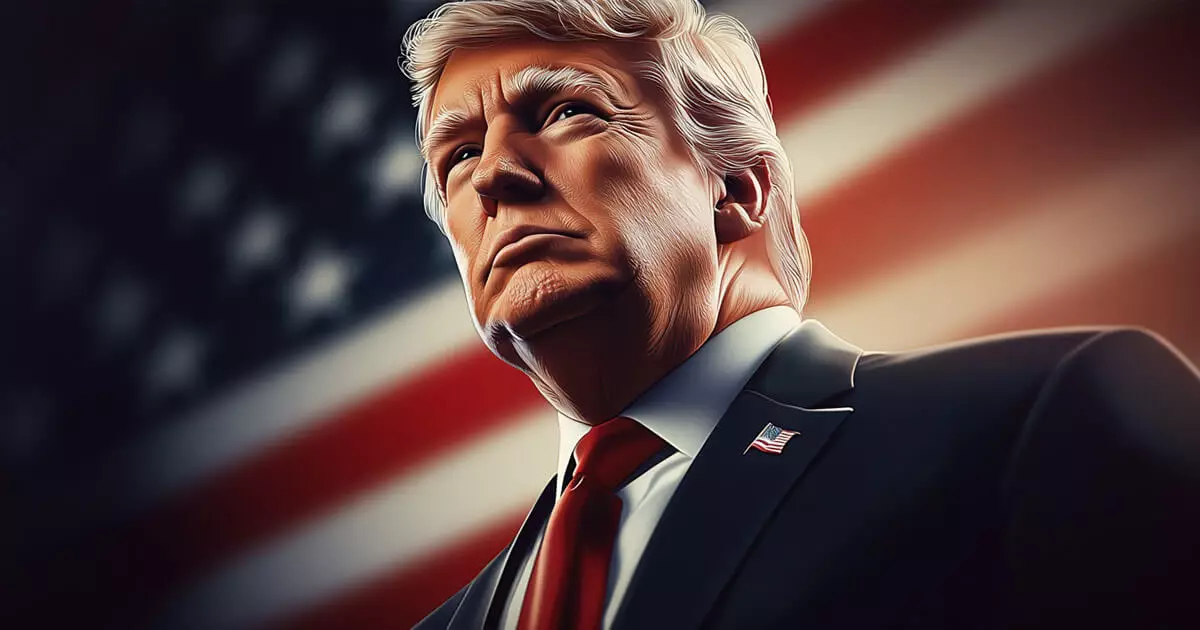The political landscape surrounding cryptocurrency enforcement in the United States is poised for significant transformation with the ascendance of Republican President-elect Donald Trump. His campaign underscored a commitment to deregulating certain sectors, and this sentiment extends to the world of cryptocurrency. Current and former government attorneys have indicated that under Trump’s administration, the impetus to rigorously pursue crypto fraud cases may diminish, redirecting enforcement resources toward other pressing governmental objectives, such as immigration law.
At a recent conference in New York, legal experts shared insights into how enforcement strategies at the Justice Department and other regulatory bodies could evolve. The notion is clear: while cryptocurrency-related scams will not be overlooked, they may fall down the priority list in favor of Trump’s other agenda items. Specifically, Scott Hartman, a prominent figure at the U.S. Attorney’s Office, suggested that the focus would shift to criminal prosecution in areas Trump champions, implicating a strategic reallocation of resources away from crypto cases which had garnered hefty attention during the market’s tumultuous 2022 downturn.
The Resource Allocation Debate
The configurations within the enforcement agencies suggest a leaner operation when it comes to cryptocurrency. Hartman mentioned his office’s current staffing levels, indicating that a reduced emphasis could further hamper their capability to manage pending and future crypto-related legal matters. Currently, the U.S. Attorney’s Office for the Southern District of New York has 16 prosecutors focused on securities and commodities violations, but there exists a palpable concern about retaining adequate personnel as priorities shift.
This realignment appears to reflect a broader strategic pivot that could significantly impact regulatory scrutiny. Legal professionals like Steve Pelkin, who previously oversaw SEC enforcement under Trump from 2017 to 2021, expressed expectations that substantial operational resources will likely be redirected to immigration enforcement rather than crypto oversight. The implications of this shift could resonate for existing crypto firms, as well as new market entrants navigating the regulatory framework.
Future Implications for Regulatory Agencies
The implications on entities like the SEC cannot be overstated. Although Trump’s previous administration was marked by a certain level of crypto enforcement under former SEC Chair Jay Clayton, the prevailing sentiment suggests a potential easing of this framework. Trump’s attempt to nominate Clayton again raises questions about continuity and enforcement intensity moving forward. Current SEC Chair Gary Gensler’s term, which does not end until July 2025, indicates that significant changes to enforcement strategies within the agency may not materialize immediately.
Moreover, ongoing litigation between the SEC and major crypto firms, such as Coinbase and Binance, adds another layer of complexity. If enforcement priorities shift substantially, there is uncertainty regarding whether these cases will persist under a new regime. The SEC’s history of initiating cryptocurrency-related actions since its first case in 2015 suggests an evolving and adaptive posture, albeit one that might see less vigor in the near future.
As the curtain rises on Trump’s anticipated administration, the landscape of cryptocurrency enforcement in the U.S. is likely to undergo notable changes. A shift away from aggressive prosecutions for crypto fraud towards other policy priorities marks a significant pivot. While this could give the crypto market a semblance of relief, the uncertainty surrounding regulatory approaches and litigation outcomes underscores the need for firms and stakeholders to remain vigilant in an ever-evolving environment. The balance between innovation and regulation continues to be a critical narrative in the unfolding saga of cryptocurrency in America.


Leave a Reply